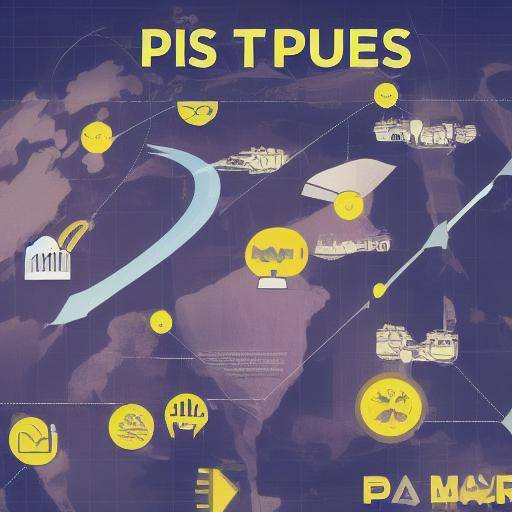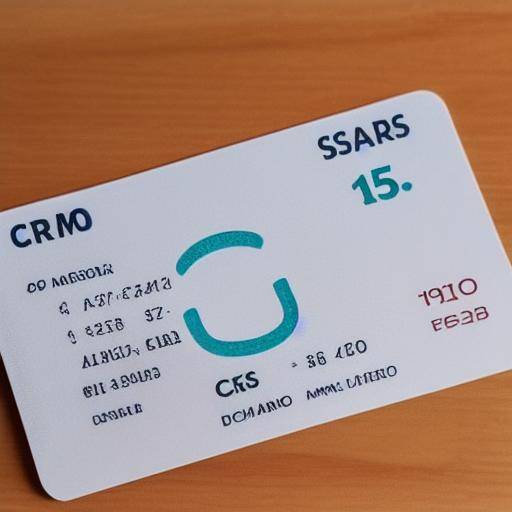
Introduction
Effective budget management is a crucial ability to achieve financial stability. In this article, we will explore how to adjust your budget to contribute regularly to the emergency fund, a vital strategy for safe financial contingency. We will discover the importance of planning, savings and discipline in this process, and provide practical advice to achieve this crucial objective.
Financial Planning: The Success Base
Financial planning is the starting point for contributing regularly to an emergency fund. When planning, you can evaluate your short- and long-term income, expenses and financial goals. The creation of a detailed budget is essential to identify areas where you can reduce expenditures and allocate funds to the emergency fund.
In considering financial planning, it is important:
- Analyze your monthly income and expenses.
- Identify non-essential expenditure areas that can be cut.
- Establish realistic financial targets.
- Prioritize a specific allocation for the emergency fund within the budget.
- Review regularly and adjust the budget as necessary.
Historic Development: The Evolution of Financial Planning
Financial planning has evolved significantly over time. From the ancient art of money management to the complex modern financial strategies, the need for sustained planning has been a constant throughout history.
During the Renaissance, the predecessors of modern financial planning emerged in the Italian commercial cities. The creation of banks, exchange houses and stock markets marked a milestone in the management of personal and commercial finances.
Depth Analysis: Addressing Current Challenges and Trends
Current financial planning faces unique challenges, such as market volatility, increased cost of living and retirement planning. However, modern planning and savings tools offer unprecedented opportunities for the average citizen.
Financial applications, automated budget programs and online advisory services are transforming the way people plan their finances. It is essential to take advantage of these technological trends to adjust and optimize the budget for the emergency fund.
The Saving: A Fundamental Pilar of Financial Stability
Disciplined savings are essential for maintaining an emergency fund. By assigning a portion of your income to savings, you can accumulate a financial mattress that will protect you in times of need. Developing the habit of saving requires self-discipline and commitment, but long-term benefits are invaluable.
In saving time, it is essential:
- Automate your savings through automatic transfers.
- Establish specific and realistic savings goals.
- Avoid the temptation to spend all available income.
- Find opportunities to increase income to allocate more funds to savings and to the emergency fund.
- Use savings accounts with interest to grow your financial mattress.
Comparative Analysis: The Importance of Discipline Saving
Compared to financial planning, disciplined savings focus more on concrete action to reserve a portion of your income to protect you economically. Through financial discipline, you can strike a balance between meeting your current needs and ensuring your future economic stability.
Financial Discipline: The Key to Maintaining a Solid Emergency Fund
Financial discipline is critical to maintaining a healthy emergency fund. This implies the ability to resist the temptation to spend the savings allocated for emergencies on unnecessary purchases or momentary desires. Maintaining financial discipline requires long-term constancy, willpower and unification to ensure that the emergency fund remains intact for its original purpose.
In addition, financial discipline also implies:
- Prioritize needs on desires in spending decisions.
- Avoid unnecessary debt to maintain the integrity of the emergency fund.
- Review regularly and adjust the budget to strengthen financial discipline.
- Establish reminders and support systems to maintain the focus on savings and the emergency fund.
Current Trends and Trends Statistics
Current trends in financial discipline show a growing focus on financial education, the application of money management tools and the use of behavioral techniques to foster healthy financial habits. The digitization of financial tools has facilitated the adoption of disciplined practices for emergency savings and management.
Practical Tips to Adjust Your Budget and Regularly Contribute to the Emergency Fund
Some practical tips that can be useful when adjusting your budget to contribute regularly to the emergency fund include:
- Prioritizing the Emergency Fund: Establish the contribution to the emergency fund as a priority in your budget, similar to other essential expenses.
- Automate Your Savings: Set up automatic transfers to your emergency fund account every time you receive your monthly salary or income.
- Reduced costs: Identify areas where you can reduce expenses, such as entertainment, non-essential purchases or subscriptions that can be dispensable.
- Review and Adjust the Budget Regularly: Verify whether existing costs can be optimized to allocate more funds to the emergency fund.
Conclusion
Adjusting your budget to contribute regularly to the emergency fund is a vital financial skill that requires planning, savings and discipline. By adopting this approach, you guarantee the solidity of your finances and prepare a financial mattress to face unforeseen with confidence and tranquility.
Remember, financial planning, disciplined savings and strong discipline are the pillars upon which to build a secure financial future. Implement these principles in your daily life and you will be on your way to greater stability and financial well-being.
FAQs
How much should I go to my emergency fund monthly?
The exact percentage may vary according to your individual circumstances, but experts suggest booking between 10% and 20% of your monthly income for your emergency fund.
What kind of account is best for my emergency fund?
An easy-to-reach and high-liquidity savings account is ideal for an emergency fund. Find accounts that offer competitive interest rates and little or no withdrawal restrictions.
How can I keep financial discipline in the long term?
Creating healthy financial habits, establishing clear goals and visual reminders, and seeking support from friends or family to hold you accountable can be effective strategies to maintain long-term financial discipline.
Should my emergency fund cover both personal and professional expenses?
It is recommended that your emergency fund can cover all your essential expenses, both personal and professional, for at least three to six months.
What is the first step to start adjusting my budget to contribute to the emergency fund?
Evaluate your current expenses, identify areas where spending can be reduced, and establish a realistic savings plan are fundamental steps to adjust your budget and contribute to the emergency fund regularly.
Is it possible to adjust my budget for the emergency fund without sacrificing my quality of life?
Yes, adjusting your budget for the emergency fund does not necessarily mean sacrificing your quality of life. Identifying unnecessary expenses and optimizing your budget allows you to allocate funds to the emergency fund without compromising your overall well-being.
In short, engaging with financial planning, disciplined savings and strong discipline provides a solid basis for regularly contributing to your emergency fund and building long-term financial security. With dedication and focus, you can reach your financial goals and protect yourself from unforeseen with confidence and tranquility.
Remember that your emergency fund is an investment in your future safety and well-being. Start adjusting your budget today and prioritize the creation of a solid emergency fund!






















































